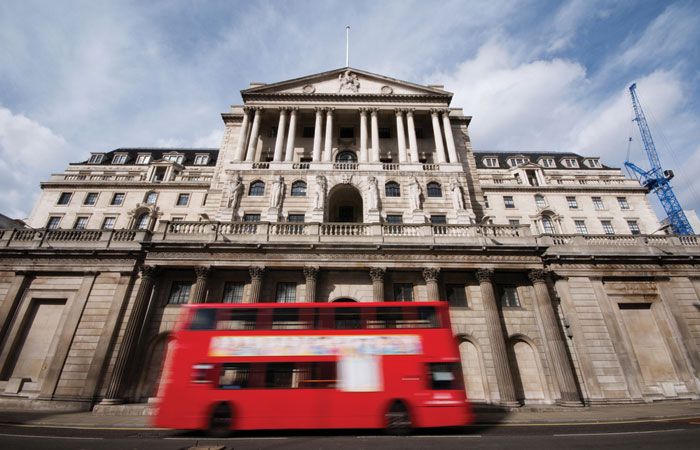
The Monetary Policy Committee (MPC) at the Bank of England has again voted unanimously to keep the bank rate at 0.10%.
The committee also voted 7-2 for the continuation of the buying of corporate bonds, with the two breakaway members believing that the economic outlook “warranted a tightening in the monetary policy stance,” which would mean stopping asset purchases “as soon as practical” rather than the end of this year.
Regarding inflation, which earlier this month the Office for National Statistics data showed rising from 2% to 3.2% in August – the quickest monthly growth since 1997 – and something the committee has described as “temporary” – the MPC minutes are somewhat gloomy.
The committee says that since its August monetary policy report, “global inflationary pressures have remained strong and there are some signs that cost pressures may prove more persistent.
“Some financial market indicators of inflation expectations have risen somewhat, including in the United Kingdom.”
The BoE has also revised its UK GDP expectations for the third quarter of this year by “around” 1%. “This downward revision in part reflects the emergence of some supply constraints on output,” say the minutes.
Additionally, the MPC states that labour market uncertainty has increased, citing fewer furloughed jobs declining than expected, “few signs of any increase in redundancies”, more open jobs and “indicators of recruitment difficulties.”
Inflation breaching the target level in August prompted an exchange of letters between BoE governor Andrew Bailey and chancellor of the exchequer Rishi Sunak.
In his letter, Bailey explains that “base effects” – i.e., inflation being too low the year previous, thus causing any price spike to create an extreme reaction, rising energy prices, and global input costs increasing were responsible for the sharp rise in inflation.
He goes on to say that inflation is expected to rise “slightly above” 4% in the final quarter of this year before returning to 2% in the medium term.
In his response, Suank says he agrees with this analysis and welcomes the MPC’s “intention to focus on and monitor the medium-term prospects for inflation closely, and take whatever action is necessary to achieve its remit.”
Altura Mortgage Finance founder Rob Gill notes that this is not a new situation. He says: “With the economy facing significant headwinds as it recovers from Covid-19, the odds always favoured the MPC ignoring inflation and keeping interest rates at their current record low. In the aftermath of the credit crunch, the MPC ‘looked through’ above-target inflation for many months, including a peak of over 5% in 2011.”
And Peak Mortgages and Protection managing director Rhys Schofield adds: “It would have been lunacy to raise interest rates with so many storm clouds on the horizon.
“The end of the £20 universal credit top-up and utility bills about to go through the roof are going to hit household budgets hard.”



